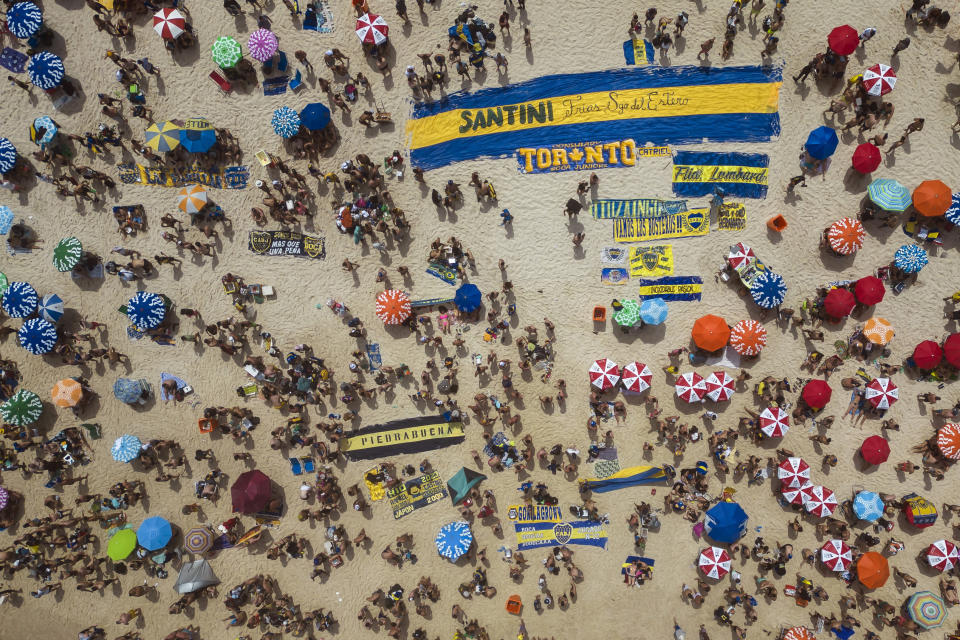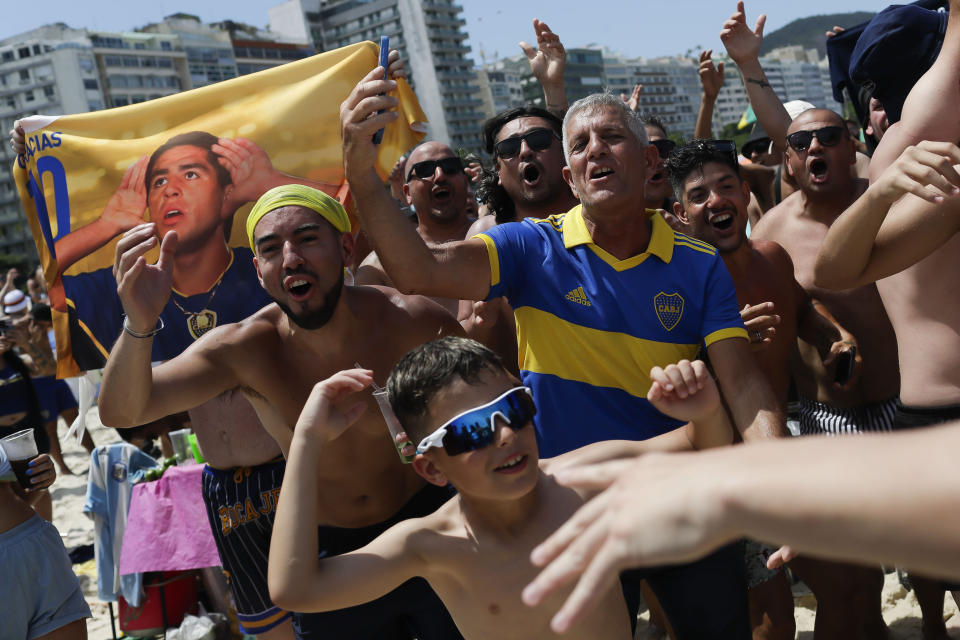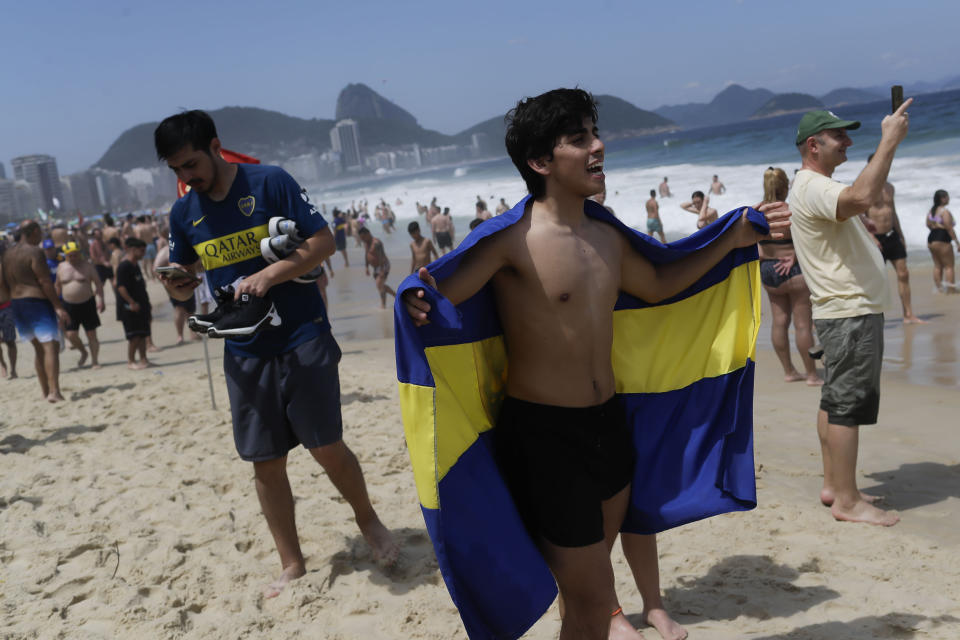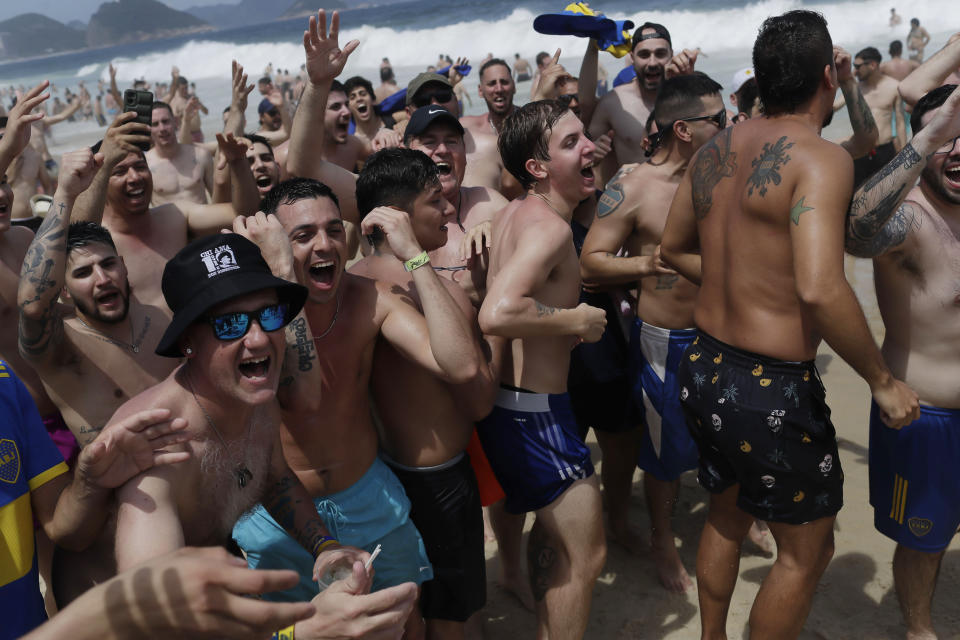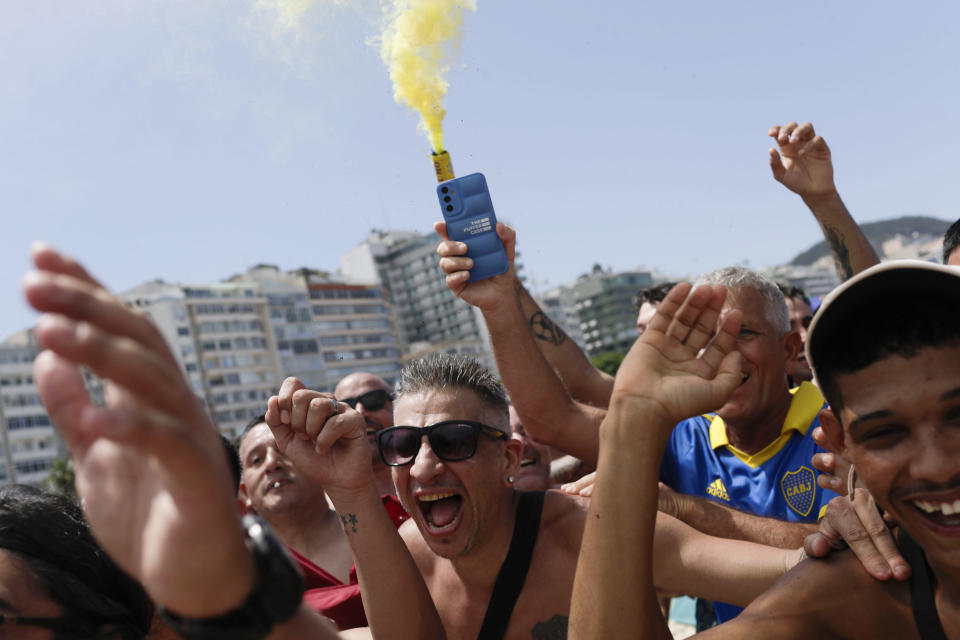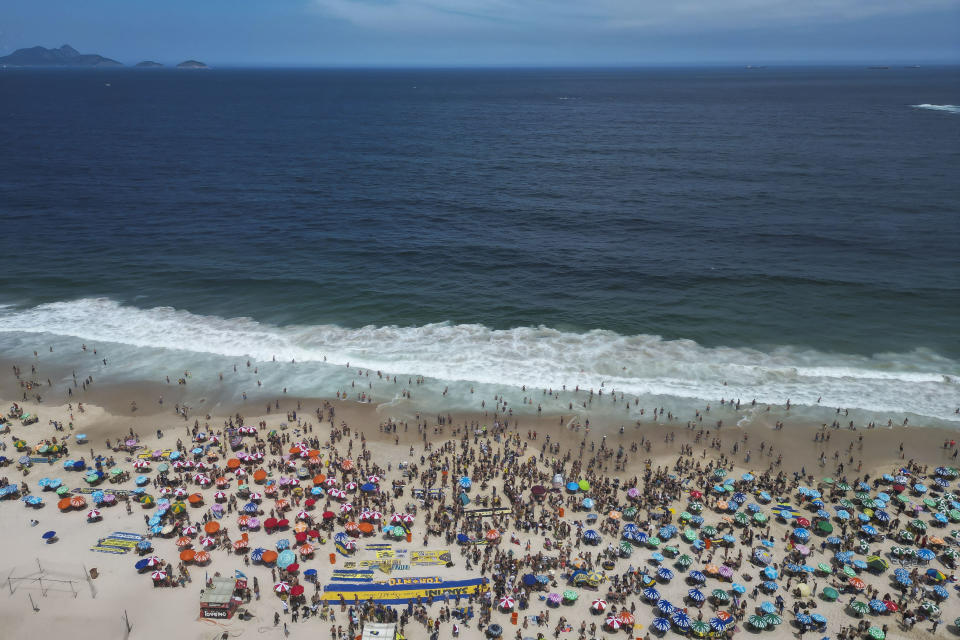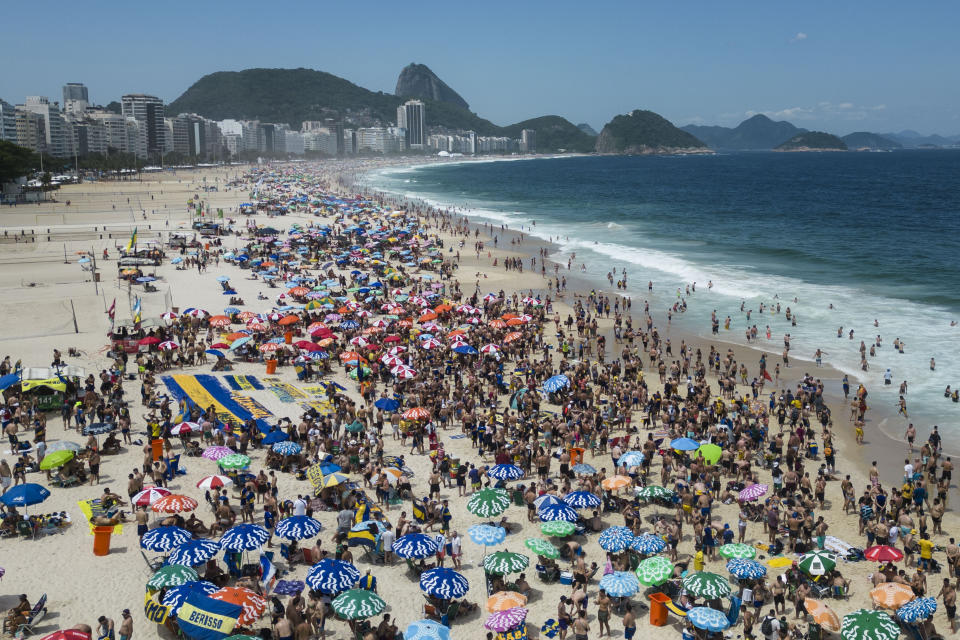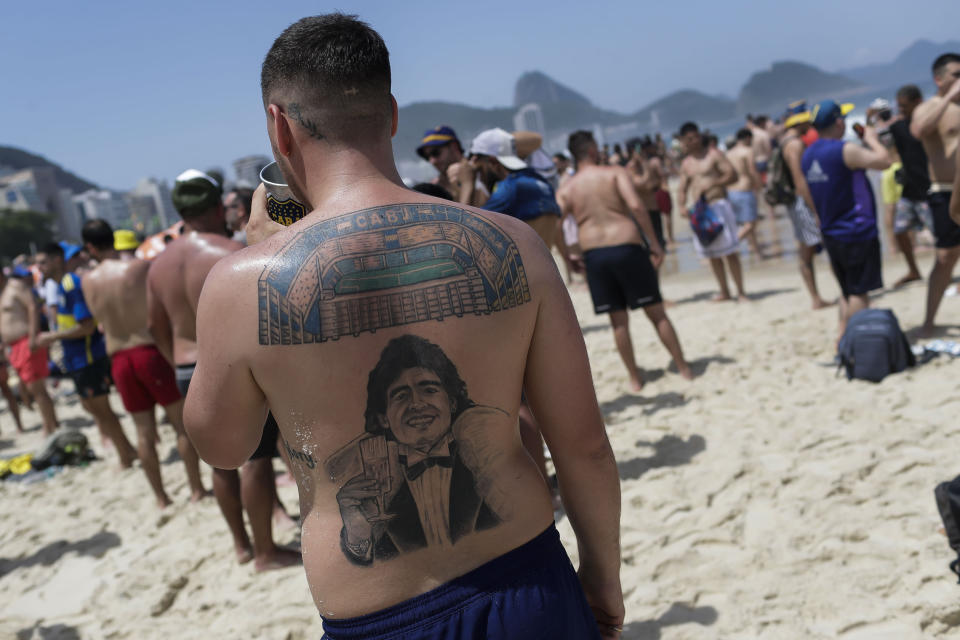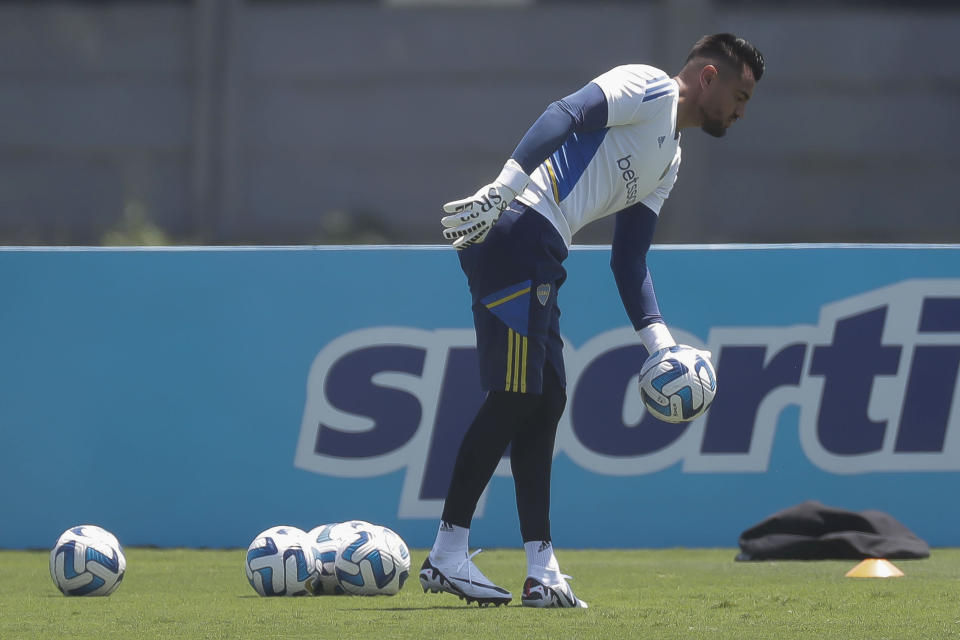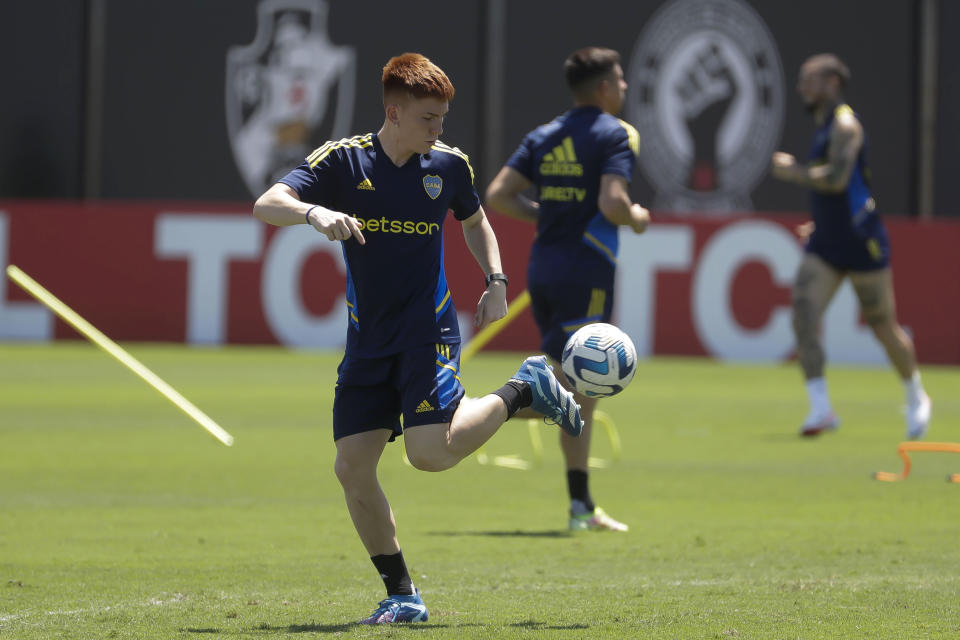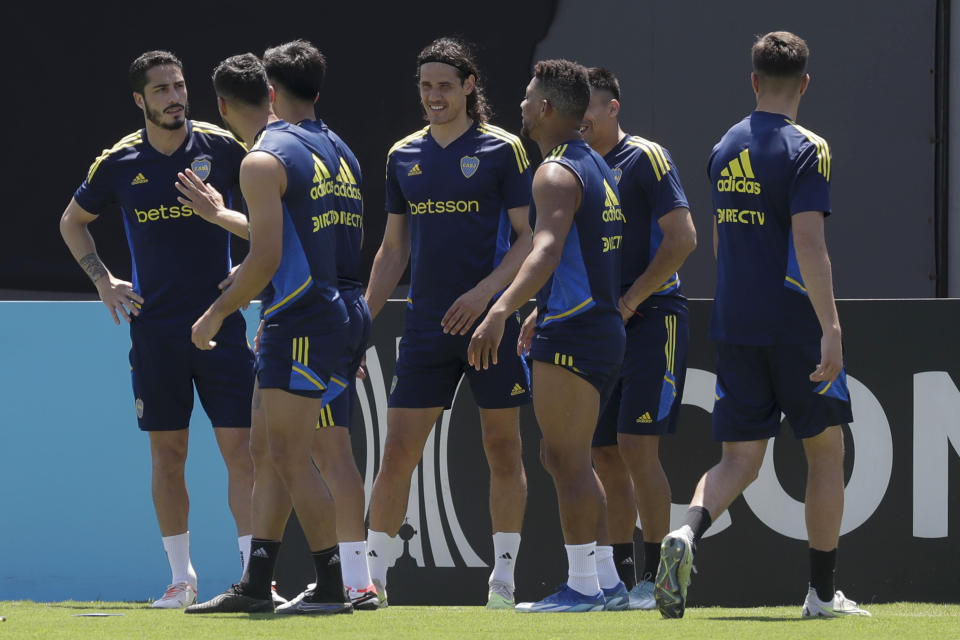Tensions spike in Rio de Janeiro ahead of Copa Libertadores soccer final and after Copacabana brawl
RIO DE JANEIRO (AP) — Tensions remained high Friday in Rio de Janeiro on the eve of the Copa Libertadores soccer final, following a brawl between fan clubs and a fierce police response on the Copacabana beach the previous day.
Thousands of Argentines poured into Rio ahead of the game between Brazil’s Fluminense and Argentina’s Boca Juniors, due on Saturday at Rio's famed Maracana stadium, much like they did for the 2014 World Cup final in Rio.
A mob swept across Copacabana beach and fighting broke out between fans of the two teams Thursday, sending hundreds of others stampeding away from the commotion, some clutching caipirinhas and hastily gathered clothes. Police said seven Argentines and two Brazilians were arrested.
“They're dominating Rio de Janeiro,” said Diana Santos, who was relaxing on Copacabana beach Friday, a Fluminense cap perched on her head and a beer in her hand.
Santos lives nearby and saw Thursday's brawl from her window. “We're a bit strained because of the size of their fan base,” she said.
Not far from Santos, a huge crowd of people wearing the yellow and blue colors of Boca Juniors sang and jumped. Fireworks illuminated the sky above them, mingling with the colored smoke bombs. Other fans sat sipping yerba mate, a typical herbal drink of Argentina.
Hotels neared maximum capacity ahead of the game, particularly in the beachside tourist areas such as Copacabana, Leme, Ipanema and Leblon, according to Rio's main hotel associations.
Many Argentine fans travelled thousands of miles to support their team. “There are stories of people hitchhiking, even biking to get here,” said Matias Garnica, 38, for whom supporting Boca has been a lifelong passion. He came from Santiago del Estero, over 1,700 miles (2,400 kilomters) from Rio.
“No one likes it when outsiders come to party in their home,” Garnica said, in reference to yesterday's chaotic scenes.
Conmebol, the continental governing body of soccer in South America, met Friday with directors of the Brazilian Football Confederation, the Argentine Football Association, Fluminense and Boca to discuss security.
Argentines criticized Brazil’s police for their response as images posted on social media by Argentine's Diario Olé outlet showed one officer pointing his gun at supporters on the beach and others using batons against Boca fans.
It wasn't immediately clear if live ammunition was involved but no fans were reported shot by police.
“Nothing justifies a repression as brutal as that seen in Copacabana, where there were even children,” Argentina’s Ambassador to Brazil, Daniel Scioli, said Thursday evening on X, formerly known as Twitter.
“You mistreated us,” read the Portuguese headline on Diario Olé's front page on Friday, plastered across what appeared to be a screenshot from the video showing police in military gear, pointing their guns.
Fans of Boca had gathered in a bar on Copacabana, drinking and singing all day Thursday, said Facundo Barbero, a 39-year-old Argentine who has been living in Rio for five years and who was among the fans at the bar.
“Fluminense fans came to take photos with the Argentines and the atmosphere was relaxed until 19:30 when the police arrived, hitting people with batons, firing shots and using tear gas,” Barbero said.
The unrest called to mind scenes from the Copa Libertadores final five years ago, when Boca was also playing. In that case, the team was playing its staunch rivals River Plate. Violence broke out and the match was postponed twice in a major embarrassment for South American soccer.
“It is essential to take extreme precaution,” Conmebol said in a statement after Friday's meeting and urged fans of Boca Juniors and Fluminense “to share together the moments of joy and celebration that soccer gives us.”
Rio’s military police will deploy 2,200 officers ahead of the match, it said in a video on Instagram. A fan zone has been erected on Copacabana, and there will also be giant screens in Cinelandia Square in the city center and in the Sambodrome — famed for the carnival parades.
